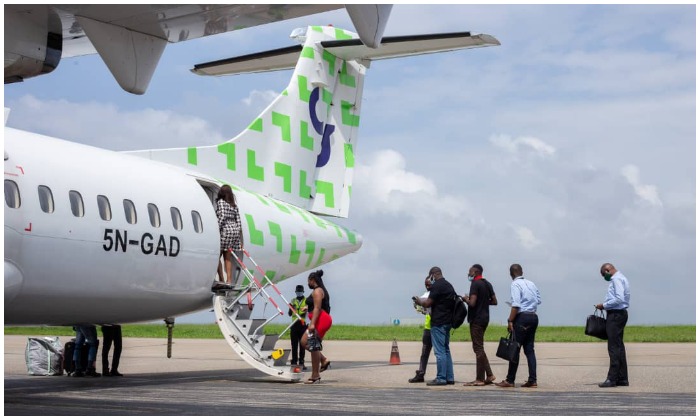Green Africa’s Temporary Flight Suspension: A Deep Dive into the Disruption and its Implications
Green Africa Airways, a Nigerian airline established in 2015, has recently announced the temporary suspension of its flight operations due to an unexpected issue with its aircraft lessor. This unforeseen development has left numerous passengers stranded and has raised concerns about the airline’s operational stability. While the airline has assured the public that it is working diligently to resolve the issue and resume operations as soon as possible, the lack of specific details surrounding the lessor dispute has fueled speculation and uncertainty. This in-depth analysis will delve into the circumstances surrounding the suspension, explore the potential implications for Green Africa and its passengers, and discuss the broader context of aircraft leasing in the aviation industry.
The abrupt suspension of flights by Green Africa has left many passengers in a state of limbo, particularly with the timing coinciding with the Eid al-Fitr holidays. This period is typically marked by increased travel demand, and the disruption has undoubtedly caused significant inconvenience for those who had made travel plans with the airline. The lack of clarity regarding the specific nature of the issue with the lessor has further exacerbated the situation, leaving passengers with limited information and uncertain about the timeline for the resumption of services. Green Africa’s statement, while expressing regret for the inconvenience and assuring passengers of its commitment to resolving the issue, has fallen short of providing the level of detail needed to fully allay concerns.
The aircraft leasing industry plays a crucial role in enabling airlines, especially newer or smaller carriers, to acquire and operate aircraft without the substantial capital outlay required for outright purchases. Leasing arrangements provide airlines with flexibility and access to a modern fleet, but they also come with contractual obligations and potential risks. The specific details of Green Africa’s leasing arrangement and the nature of the dispute with the lessor remain undisclosed, making it difficult to definitively assess the severity and potential long-term implications of the situation. Several scenarios are possible, ranging from a minor contractual disagreement to a more significant breach of leasing terms.
The implications of this temporary suspension are far-reaching, affecting not only Green Africa’s passengers but also the airline’s reputation and financial stability. The disruption could lead to significant financial losses, including compensation for affected passengers, lost revenue from cancelled flights, and potential penalties associated with the leasing agreement. Moreover, the incident could damage the airline’s brand image and erode customer trust, which is especially critical for a relatively young airline striving to establish itself in a competitive market. The prolonged grounding of flights could also lead to operational challenges, including maintaining staff morale and managing aircraft maintenance during the period of inactivity.
The wider context of the aviation industry and the prevalence of aircraft leasing arrangements adds another layer of complexity to this situation. The airline industry is highly capital-intensive, and leasing has become a standard practice for many airlines worldwide. However, leasing arrangements are not without their challenges, and disputes between airlines and lessors can arise for various reasons, including disagreements over lease terms, maintenance responsibilities, or financial obligations. The current situation with Green Africa underscores the inherent risks associated with relying on leased aircraft and the potential for disruptions when these arrangements encounter difficulties.
Looking ahead, Green Africa faces the critical task of resolving the issue with its lessor as quickly and efficiently as possible to minimize further disruption to its operations and regain passenger confidence. Transparency and clear communication with affected passengers will be essential in managing the fallout from this incident. The airline will also need to address the underlying causes of the dispute to prevent similar occurrences in the future. This situation serves as a reminder of the complexities of the aviation industry and the importance of robust risk management strategies for airlines, especially those relying on leased aircraft. The long-term impact of this suspension will depend on how effectively Green Africa navigates this challenge and restores its operational stability.


